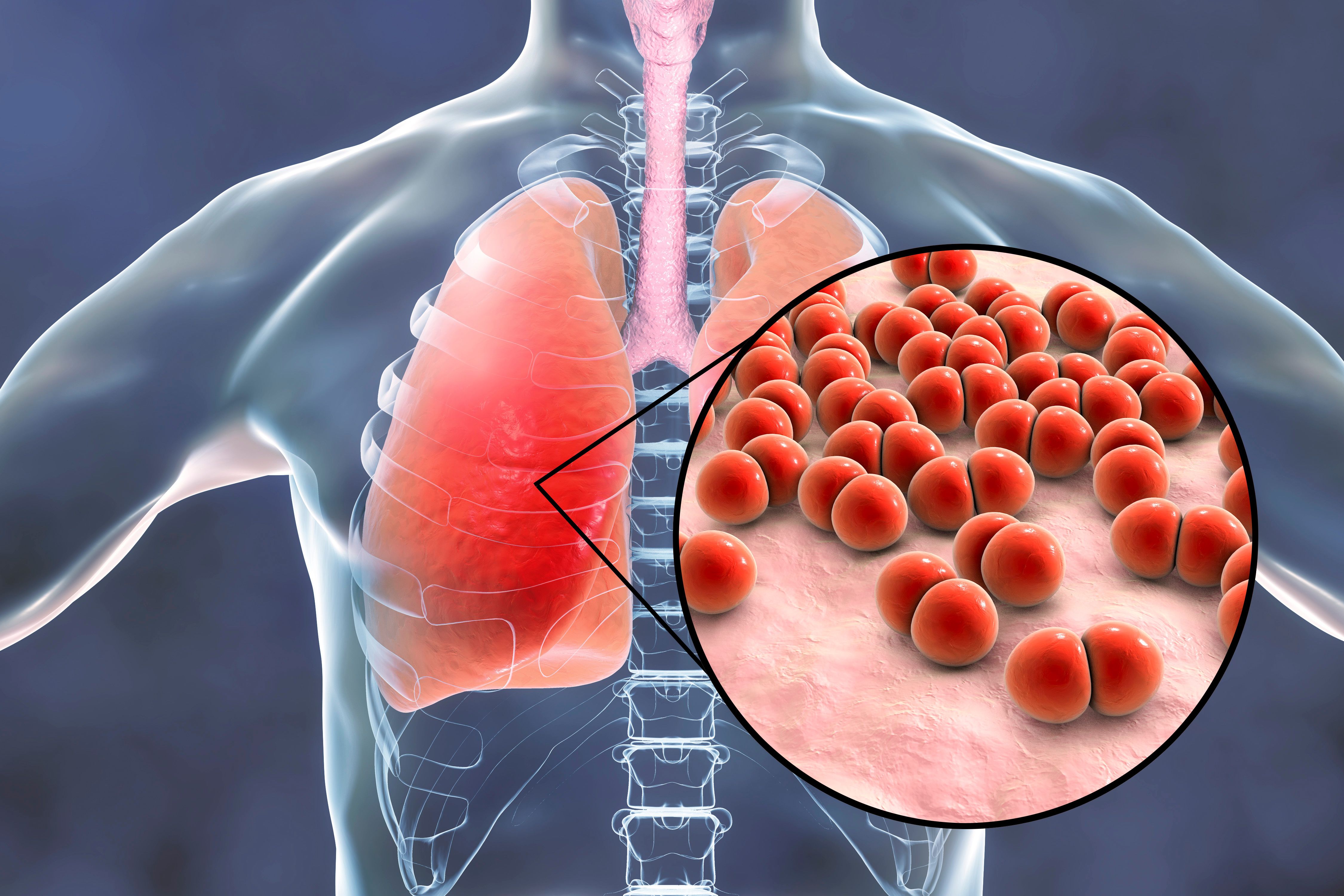News
Article
Study: Contact With Children Causes Transmission of Pneumococcal Disease Among Older Adults
Author(s):
The prevalence of transmission was higher for those who had contact with children aged less than 5 years and aged 5 to 9 years compared with children aged older than 10.
Contact with preschool and young school-aged children has been found to be the most important factor for transmission of Streptococcus pneumoniae for individuals aged 60 years and older, according to results of a study presented at the European Congress of Clinical Microbiology and Infectious Disease 2024 in Barcelona, Spain, from April 27 to April 30, 2024.1,2
Image Credit: Dr_Microbe - stock.adobe.com

“Our study found no clear evidence of adult-to-adult transmission, even though there were households in which an individual was positive for pneumococcus across numerous sampling moments, and instances where both adults in the household carried pneumococcus around the same time,” Anne Wyllie, PhD, from the Yale School of Public Health, New Haven, Connecticut, said in a press release. “Instead, we found that transmission was highest among older adults who had frequent contact with young children. This suggests that the main benefit of adult pneumococcal vaccination is to directly protect older adults who are exposed to children who may still carry and transmit some vaccine-type pneumococcal strains despite successful national childhood vaccination programs.”1
According to the National Foundation for Infectious Diseases, approximately 150,000 individuals with pneumococcal pneumonia are hospitalized in the United States each year, with approximately 5% to 7% deaths. For those aged 65 and older, the mortality rate is even higher, the organization reports.3
In the study, investigators aimed to evaluate within-household transmission between adults and the risks that are associated with pneumococcal infections for older adults in the community.2 From the autumn/winter seasons of 2020/2021 and 2021/2022, the investigators of the study enrolled household pairs (eg, married couples) who were both aged 60 or above and had no individuals in the household younger than 60. Enrollment was delayed by up to 4 weeks if the individual reported symptoms of respiratory illness, received antibiotics, or a pneumococcal vaccination within the past 4 weeks, according to the study authors. Samples of saliva and demographic data were collected every 2 weeks for a total of 6 visits in the 10-week study inclusion. At the last visit, individuals also provided a urine sample.2
From November 2020 through September 2022, there were 61 households of 121 individuals, with 62 individuals being enrolled in both seasons. There was 1 household of an individual who was single, but residing in a living facility for older adults, according to the study authors. The mean age was 70.9 years, 85.2% were White, and 77.6% held a bachelor’s degree or higher.2
Furthermore, the findings showed that 4.8% of the 1088 samples tested positive for pneumococcus overall, with 22.3% of 121 individuals having carriage of pneumococcal disease at 1 time point throughout the study. For season 1, approximately 14.7% of 95 individuals were colonized on at least 1 time point and 15.9% were in season 2. For 48 households in season 1, 4.2% had both members as carriers and 6.8% of 44 for season 2.2
Interestingly, investigators noted that the point prevalence of those who were pneumococcal carriers was higher for those who had contact with children at 10% compared to those who did not have recent contact with children at 1.6%. For those who had contact with children aged less than 5 years and aged 5 to 9 years, the point prevalences were 14.8% and 14.1%, respectively, compared to 8.3% of those who had contact with children aged older than 10. Additionally, for those who had contact once or twice a month or no contact had point prevalences of 4.5% and 1.8%, respectively.2
References
Recent contact with young children linked to trebling of risk of over-60s acquiring pneumonia-causing bacteria. News release. EurekAlert. April 3, 2024. Accessed May 15, 2024. https://www.eurekalert.org/news-releases/1039853
Wyllie AL, Yolda-Carr D, Hislop MS, Mbodj S, et al. Contact with young children is a major risk factor for pneumococcal colonization in older adults. 2024. doi:https://doi.org/10.1101/2024.01.03.24300789
National Foundation for Infectious Diseases. Pneumococcal Disease and Older Adults. February 2023. Accessed May 15, 2024. https://www.nfid.org/infectious-diseases/pneumococcal-disease-and-older-adults/
Newsletter
Stay informed on drug updates, treatment guidelines, and pharmacy practice trends—subscribe to Pharmacy Times for weekly clinical insights.






